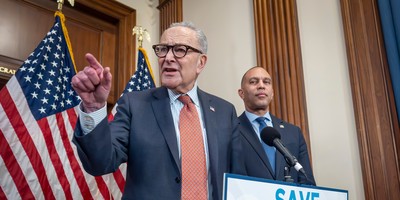I have often proclaimed that I am an avid anti-environmentalist, and ergo, many therefore accuse me of being a greedy, willfully ignorant, lazy environment-neglecter. But clearly, there is a major disconnect here, because you would be hardpressed to find another individual who loves and wants to conserve the quality of the great outdoors, our natural resources, and the planet in general, than myself.
The issue, I think, lies in the very term ‘environmentalist,’ which should not be confused with ‘a person who appreciates and wants to protect the environment.’ The term ‘environmentalism’ has been commandeered by a political movement that has given up on innovative solutions and instead unfailingly turns to government for their every whim.
The people running Solyndra? I’m sure they’d call themselves ‘environmentalists,’ and they were completely ineffective. They took taxpayer money to produce a product nobody wanted to buy, and then lied about their finances. Was it because they were so convinced of their noble ‘environmental’ goal that they’d gamble on terrible business decisions to see it bear fruit? …I’m skeptical, to say the least.
The Environmental Protection Agency? Definitely ‘environmentalists.’ In implementing the Clean Air Act, the EPA is conveniently disallowed from considering any of the costs of their regulations, ostensibly to better guard public health. They’re currently locked up in a court battle in an attempt to pass a new batch of greenhouse gas regulations that would cost $21 billion taxpayer dollars, require 230,000 new bureaucrats, increase the number of businesses under regulation from 14,000 to 6.1 million, and be administratively impossible to implement by the 2016 deadline anyway. Obviously not effective, but they forge ahead with these job-killing, economy-frustrating measures anyhow. Is it because these enlightened overlords are only concerned with the public welfare and must dutifully force people to tread the path of supposed righteousness, come hell or high water? Hmmm.
Recommended
The U.S. Department of the Interior? Yep, they’d qualify as ‘environmentalists,’ too. But the Interior Department is single-handedly responsible for severe environmental degradation on a daily basis, as the federal government owns almost one-third of the surface area of the United States and has shown itself incapable of effective management. Mounting bureaucracy and red tape are not an ideal recipe for environmental quality.
The examples of the federal government trying and failing to legislate ‘environmental’ projects are myriad. Make no mistake about it: ‘environmentalism’ boasts one of the most powerful, expansive, special moneyed interests around. Although solar panels and cleaner air are easy political sells, the federal government cannot force costly endeavors to function in the real world through fiat, and the unintended consequences are usually both economically and environmentally destructive.
Environmental quality and economic prosperity are not mutually exclusive. Think about it: the free market has given us cell phones, computers, cars, and so much more (sidebar from Superfreakonomics: if you think cars are bad for the environment, imagine if every car today was a horse instead!). In short, the free market is responsible for unleashing human ingenuity and bringing us all of the things that make our lives amazingly easy and efficient. Why would the environment be an exception to that rule?
Conservatives aren’t looking to chop down the world’s rainforests, construct smog-belching factories hither and yon, poison the water supply, and let the planet heat up until we all drown beneath the rising oceans. We’re just looking for common sense.
The Property and Environment Research Center uses the term ‘free-market environmentalism’ to describe their approach to solving environmental problems, and they’re calling for the formation of a ‘Green Tea Party,’ as Terry Anderson explains in the WSJ:
The GTP would not be for you if you think increasing Washington bureaucracy budgets will produce a cleaner environment. Since 1980, the Environmental Protection Agency's inflation-adjusted budget has been relatively flat, but air and water quality have improved. Most improvements came through cost-saving technologies in the private sector, not regulations.
The GTP's platform would be that only prosperity and incentives can drive environmental improvements. The first plank: Wealthier is healthier. From the U.S. to the former Soviet Union, data show that economic growth is necessary for environmental improvement, not its enemy. Such growth requires a strong private sector, not more federal spending and red tape. The second plank: Incentives matter. The GTP would use a carrot instead of the regulatory stick to improve environmental quality, and let energy markets and prices dictate energy sources. A replacement for fossil fuels will be found only when entrepreneurs can make a profit from cheaper, cleaner and more efficient energy. ...
It is not enough to strut your stuff in clothes made of recycled materials while driving your hybrid to an environmental protest. And environmental quality cannot be bought simply by throwing more tax dollars and regulations at problems. The GTP would serve environmental quality, budget cuts and economic prosperity.
Liberals are not the only ones who care about the environment, despite their incessant claims to the contrary, and it has become all too easy to demand that the government swoop in and spend taxpayers’ dollars on politically appealing projects. Debacles like the Solyndra failure are an opportunity for conservatives to reclaim ‘environmentalism’ and to suggest real free-market solutions as an alternative to the long-accepted wisdom of big government.

























Join the conversation as a VIP Member